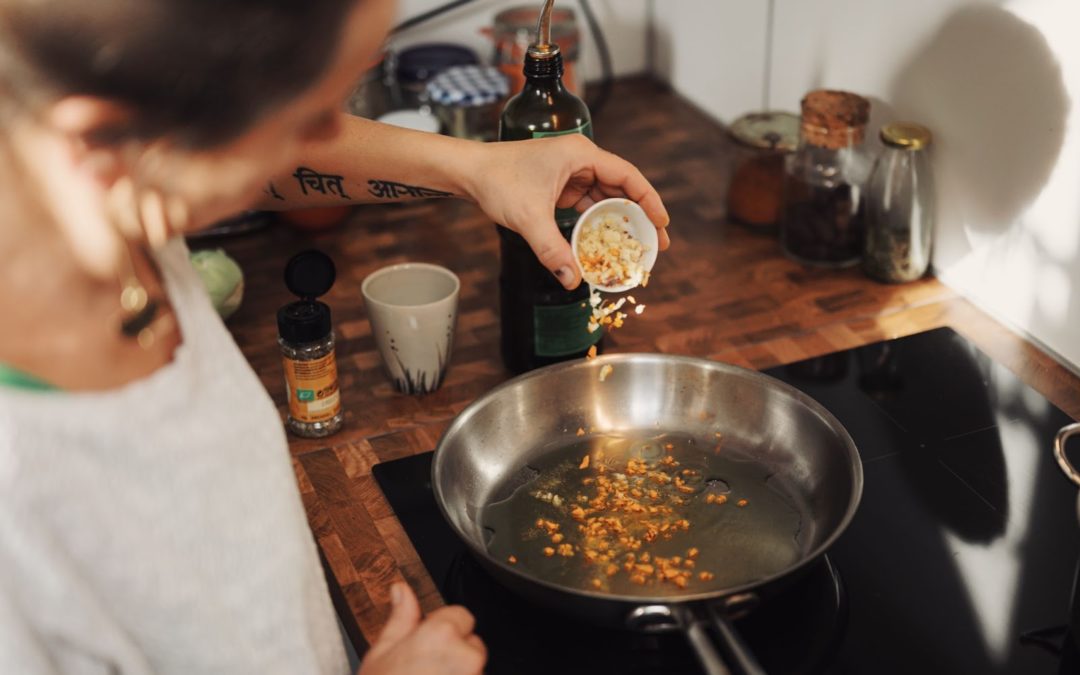If you didn’t learn to cook from your parents or another adult when you were younger, you might struggle to pick up the skills independently. You may feel more and more self-conscious about your cooking abilities as you get older.
Yet, regardless of your starting point, learning to cook well can be a great way to gain independence and amaze your loved ones.
The fundamentals of cooking can be learned without attending culinary school, but doing so can help you master a wider range of flavors, proportions, and methods. Because, you know, not everyone aspires to cook on a global stage.
We’ve compiled several easy methods that will help you become a better cook in this post.
Plan In Advance
It’s exciting to try out a new dish, but you shouldn’t dive in blind. Before starting, make sure you’ve read the entire recipe. Have you gathered all the necessary items, or are you prepared to improvise? Are there sufficient amounts of everything needed? Nobody likes stopping mid-meal to dash to the shop.
It’s also a good idea to read the reviews and look for patterns. Is it recommended that you use more salt or less sauce? If that’s the case, I recommend looking into such ideas more.
When you have more expertise, you can veer from the norm, but when dealing with a brand-new receipt, it’s usually advisable to follow the instructions to the letter.
Use The Right Ingredients And Tools
If you don’t have the staples on hand, it’s tough to hone your culinary chops. Maintaining a well-stocked pantry and refrigerator with perishables like fresh or frozen produce, eggs, milk, olive oil, and spices.
Also, check that you have everything you need, including dishes, utensils, and cooking utensils. Purchasing high-quality, long-lasting tools is a worthwhile investment. It’ll be a lot of fun and less work in the kitchen.
Get Some Basic Recipes Under Your Belt
You shouldn’t put in the effort to master a complicated recipe you’ll never prepare again. Learning and practicing the basics, such as how to roast a chicken, sauté vegetables, and make pasta, will help you build a solid foundation. You can then move on to more complicated recipes to really impress your sweetheart once you’ve mastered the basics.
Practice Your Knife Skills
Is it possible to quickly dice a pepper, as you might see on a cooking show? While it may amaze guests, it won’t help you become a better chef. The most useful skill you can acquire is the ability to cut various types of food consistently to the same size and shape.
Food that has been diced or chopped consistently will cook more quickly and evenly. On the other hand, if you cut your components into wildly varying sizes, you run the risk of burning some of them and undercooking others.
Pace Yourself
Especially if you are just starting off, you should not rush through the cooking process. The time it should take is typically indicated on the receipt, but you should allow extra time just in case. Don’t reward yourself by going to the movies or eating out afterward. Doing things well requires patience, whether it’s waiting for the dough to rise or methodically adding ingredients one at a time. make a world of a difference in the final product of your cooking. This sourdough bread recipe is a great place to start.
It’s important to plan ahead of time for this. Meat is more tender after being allowed to come to room temperature before being cooked. This is because the proteins in the meat have had a chance to relax a little. Luckily, scheduling your dishes so that they’re all ready at the same time will be a breeze if you’ve had plenty of practice.
Master the Art of Flavor Balancing
Learning how to balance flavors can be quite useful if you’ve ever been annoyed by a dish that was either too sweet or too salty and you had no idea how to repair it. To achieve culinary harmony, one must be aware of which flavors to amplify when one dominates a meal.
The finished dish shouldn’t be overly salty, but a little bit of salt goes a long way. The differences between the various types of salt are subtle, but they exist despite appearances to the contrary.
Feel free to adjust the salt to your liking and veer somewhat from the recipe if that’s how you roll. When a recipe calls for a certain amount of salt, it is usually more of a suggestion than anything else because everyone has a different taste. One notable example is baking, where salt has a very specific function and must be measured precisely.
After adding as much salt as you like, if your food still tastes off and you can’t put your finger on it, the acid may be to blame. Add a little vinegar, wine, or lemon juice. This will perk up the flavor and bring out the color of your vegetables.
Practice As Much As Possible
Practice makes perfect, and that adage certainly holds true in the kitchen. Regularly preparing meals at home allows you to hone your cooking abilities. Over time, a less-than-ideal dish can evolve to serve as a reliable staple.










